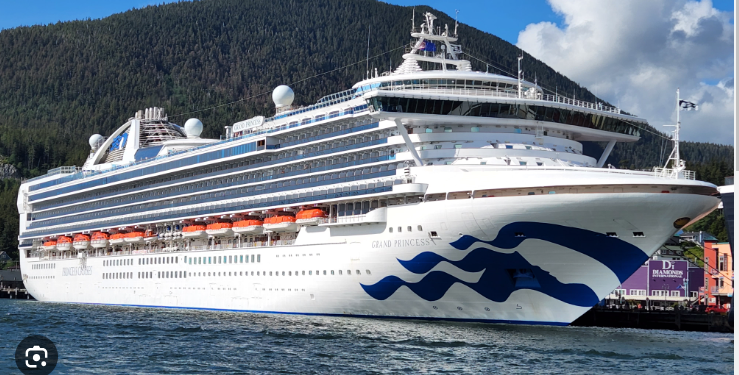Introduction:
Cruising, a timeless and cherished vacation choice for many, has been a hallmark of relaxation, exploration, and adventure. Carnival Corporation & plc, the world’s largest cruise company, has long been a major player in the cruise industry. Over the years, the Carnival Cruise stock has been a subject of keen interest for investors seeking a piece of the travel and leisure sector. In this article, we’ll delve into the captivating voyage of Carnival Cruise stock, exploring its historical performance, the factors influencing its fluctuations, and the company’s strategies to overcome challenges and sail toward brighter horizons.
I. A Brief History Of Carnival Cruise Stock:
To understand the present, we must first explore the past. The history of Carnival Cruise stock is one that boasts highs and lows, echoing the cyclical nature of the travel industry. Founded in 1972, Carnival Cruise Line established itself as a pioneer in the modern cruise experience. As the company expanded its fleet and acquired other cruise lines, its stock gained momentum, attracting investors eager to ride the wave of the growing industry.
However, like any cruise, there have been stormy waters. Major geopolitical events, economic downturns, and natural disasters have all impacted the cruise industry, and consequently, Carnival Cruise stock. The tragic incidents, such as the Costa Concordia disaster in 2012, had a profound impact on the company’s reputation and stock value, leading to a significant dip.
II. Factors Influencing Carnival Cruise Stock:
- Economic Conditions: The cruise industry is highly sensitive to economic fluctuations. During prosperous times, consumers are more willing to spend on discretionary expenses like vacations, resulting in increased demand for cruises. Conversely, economic downturns can lead to reduced consumer spending and a decline in cruise bookings.
- Geopolitical Events: Geopolitical tensions and international conflicts can significantly affect the global travel industry, leading to itinerary changes, cancellations, and decreased demand for cruises in certain regions.
- Health and Safety Concerns: Incidents of onboard illness outbreaks, like the norovirus or COVID-19, can damage consumer confidence and result in cancellations and booking declines.
- Environmental Regulations: As the world becomes increasingly focused on sustainability, cruise companies face pressure to adhere to strict environmental regulations, which can affect operating costs and potentially influence investor sentiment.
- Fleet Modernization and Innovation: Carnival’s ability to invest in state-of-the-art ships and onboard amenities can play a role in attracting customers and boosting the company’s stock value.
III. Weathering The Storms: Carnival’s Strategies And Response:
- Crisis Management and Safety Enhancements: After the Costa Concordia incident, Carnival took significant steps to enhance safety protocols, investing in advanced navigation technologies and crew training to prevent future accidents.
- Diversification: To reduce dependency on specific regions and capitalize on varied markets, Carnival expanded its global presence by introducing cruises to new destinations and increasing its brands’ diversity.
- Environmental Responsibility: In response to mounting environmental concerns, Carnival committed to sustainability initiatives, including the adoption of cleaner technologies and a reduction in single-use plastics.
- Digital Transformation: Embracing technology has enabled Carnival to streamline operations, enhance the guest experience, and optimize marketing efforts, leading to potential cost savings and revenue growth.
- Dealing with COVID-19: The pandemic posed unprecedented challenges to the cruise industry. Carnival, like others, suspended operations temporarily, cut costs, and sought to strengthen its liquidity position to weather the storm.
IV. FAQs:
- Q: Is investing in Carnival Cruise stock a viable option in the post-pandemic era?
A: Investing in Carnival Cruise stock involves inherent risks due to the cruise industry’s cyclicality and sensitivity to external factors. While the industry is expected to rebound, potential investors should conduct thorough research, consider their risk tolerance, and assess the long-term outlook for the company. - Q: How does Carnival differentiate itself from other cruise lines, and why should investors consider it?
A: Carnival distinguishes itself through its diverse brand portfolio, global reach, and ongoing efforts to enhance the guest experience. Additionally, Carnival’s commitment to environmental sustainability and digital transformation may position the company for future growth.
Conclusion:
The journey of Carnival Cruise stock has been one of tempestuous seas and calm waters, mirroring the cyclical nature of the travel industry. Over the years, the company has navigated through various challenges, demonstrating resilience and adaptability. While investing in Carnival Cruise stock can offer potential rewards, investors must remain mindful of the inherent risks and volatility associated with the travel and leisure sector.
As the cruise industry emerges from the challenges of the pandemic, Carnival’s strategic initiatives, commitment to safety, and focus on sustainability could play pivotal roles in its recovery. Nevertheless, the long-term success of Carnival Cruise stock remains contingent on its ability to innovate, anticipate shifts in consumer preferences, and overcome future obstacles in this ever-evolving industry.












